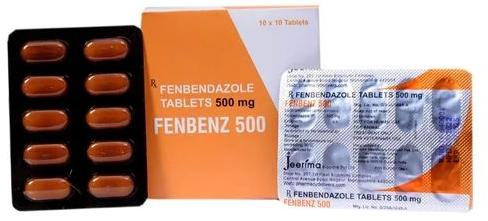Top 5 Benefits fenbendazole Is Widely Used in Veterinary Practice
Recognizing the Conveniences and Uses of Fenbendazole in Veterinary Medication
Fenbendazole has actually developed itself as a crucial anthelmintic in veterinary medication. Its ability to target different parasitic infections makes it an important tool for veterinarians. The medicine's system disrupts vital cellular procedures in bloodsuckers, bring about reliable treatment end results. Its security account differs between types, requiring careful consideration in its use (222 mg). Comprehending these dynamics can drop light on fenbendazole's more comprehensive effects in veterinary care and recurring research study into its potential past standard applications
System of Activity of Fenbendazole

Common Parasitical Infections Treated With Fenbendazole
A range of parasitic infections are effectively treated with fenbendazole, making it a functional choice in veterinary medicine. This anthelmintic agent is particularly effective against nematodes, consisting of roundworms and hookworms, which typically impact pets and pet cats. It is likewise made use of for the treatment of cestodes, such as tapeworms, giving a broad range of action against both kinds of digestive tract parasites. Additionally, fenbendazole is valuable in taking care of infections triggered by protozoa, particularly Giardia, which can result in stomach distress in animals. Its efficiency reaches dealing with specific lungworms in pooches and felines, addressing breathing wellness problems linked to these parasites. Generally, fenbendazole's capacity to target numerous parasitical species makes it a useful tool in vet method, making sure the health and wellness and wellness of animals impacted by these typical infections.
Safety and Efficiency in Various Pet Variety
The safety and security and efficiency of fenbendazole differ amongst various animal types, emphasizing the importance of species-specific factors to consider in vet medicine. In canines, fenbendazole is normally well-tolerated and effective versus a series of stomach bloodsuckers, including roundworms and hookworms. For felines, nevertheless, its use is less typical and might require mindful application due to potential damaging responses.
In livestock, such as livestock and sheep, fenbendazole demonstrates effectiveness versus numerous endoparasites, adding to enhanced health and productivity. The pharmacokinetics and prospective side impacts can differ markedly between varieties, demanding careful analysis by veterinarians.
Equines additionally react positively to fenbendazole, specifically for treating strongyles and ascarids, though dose and administration courses should be customized to their special physiology. Recognizing these distinctions is vital for enhancing therapy end results and ensuring pet well-being across varied species.
Management and Dose Standards
Correct management and dosage standards are important for making the most of the healing results of fenbendazole while reducing potential adverse effects. The dosage usually differs depending upon the species being treated, the particular problem, and the solution of fenbendazole used. fenbendazole 444. For dogs and felines, an usual dosage is 50 mg/kg body weight, administered daily for 3 successive days, but veterinarians may change this based upon individual wellness assessments
It is very important to provide fenbendazole with food to enhance absorption and reduce stomach trouble. The drug is readily available in numerous kinds, consisting of granules and paste, enabling versatile management choices. Checking the animal's response during and after treatment is a good idea to confirm efficacy and safety. Furthermore, veterinary support is vital to figure out the ideal duration of treatment based on the type of parasitical infection being resolved, assuring perfect end results for the pet's health and wellness.
Future Perspectives and Study on Fenbendazole
Research on fenbendazole continues to develop, concentrating on its prospective applications beyond standard antiparasitic uses. Current researches have actually discovered its performance in treating numerous types of cancer, click over here now especially in vet oncology. Initial information recommend that fenbendazole may hinder the growth of growth cells and enhance the results of other chemotherapeutic agents.
Scientists are examining its role in handling stomach conditions in animals, highlighting its anti-inflammatory residential properties. The versatility of fenbendazole for different species questions about its safety and security profiles and ideal dosing routines in diverse populaces.
As interest grows, there is a demand for extensive professional tests to develop evidence-based standards for these novel applications. Future research study might likewise examine the mechanisms behind fenbendazole's results, potentially paving the way for cutting-edge restorative strategies in veterinary medication. The continuous expedition of fenbendazole might greatly boost therapy choices for various vet problems.

Regularly Asked Concerns
Is Fenbendazole Safe for Pregnant Animals?
The safety and security of fenbendazole for expectant animals continues to be unpredictable. While some get redirected here researches recommend marginal threat, vets generally advise caution and commonly discourage its use while pregnant unless the advantages clearly exceed possible risks.
Can Fenbendazole Be Utilized in Animals?
Fenbendazole is typically used in animals to treat different parasitical infections. fenbendazole capsules. Its efficacy versus stomach worms makes it a beneficial anthelmintic, adding to boosted health and wellness and efficiency in animals increased for food and fiber
What Are the Negative Effects of Fenbendazole?

The adverse effects of fenbendazole may consist of intestinal disruptions, lethargy, and allergies. In rare cases, extra serious responses can happen, necessitating mindful surveillance and assessment with a veterinarian throughout therapy.
How Does Fenbendazole Contrast to Various Other Dewormers?
Fenbendazole uses broad-spectrum efficacy against different bloodsuckers, often comparing positively to various other dewormers. Its one-of-a-kind device image source targets various life phases, making it efficient, while usually providing a favorable safety account contrasted to choices readily available on the marketplace.
Can Fenbendazole Be Utilized for Dealing With Cancer Cells in Animals?
The potential of fenbendazole in dealing with cancer in pets has actually gathered interest. Initial researches recommend it might prevent cancer cells cell development, however even more research is needed to validate its efficacy and security in vet oncology.